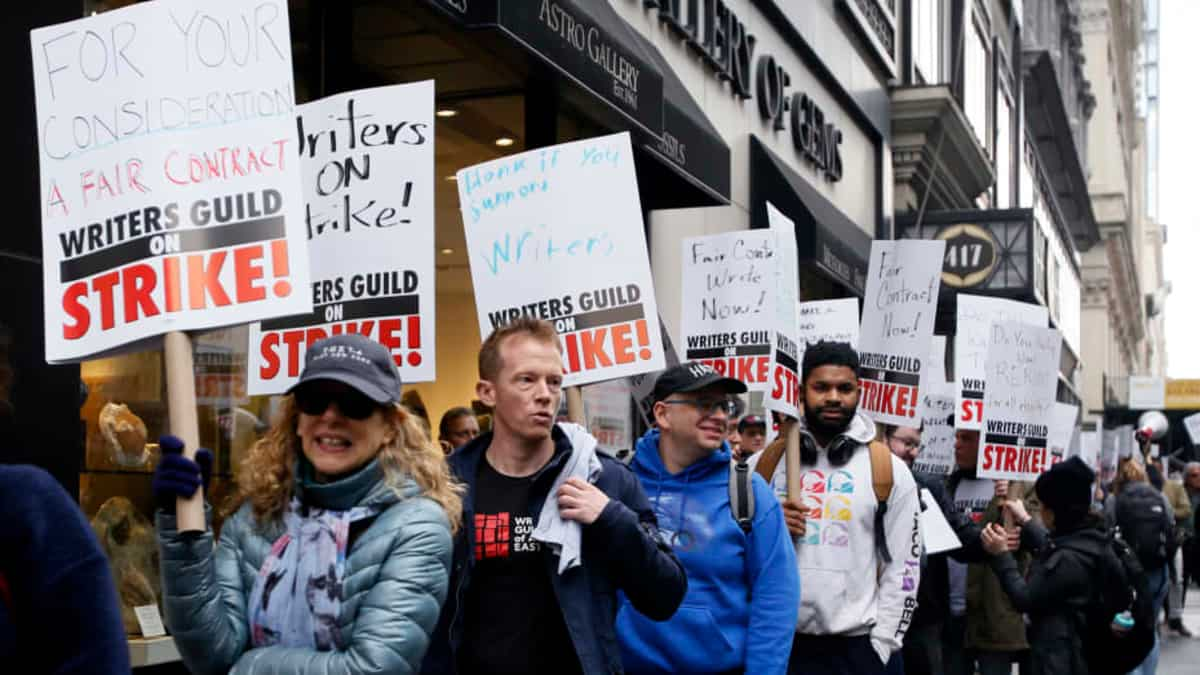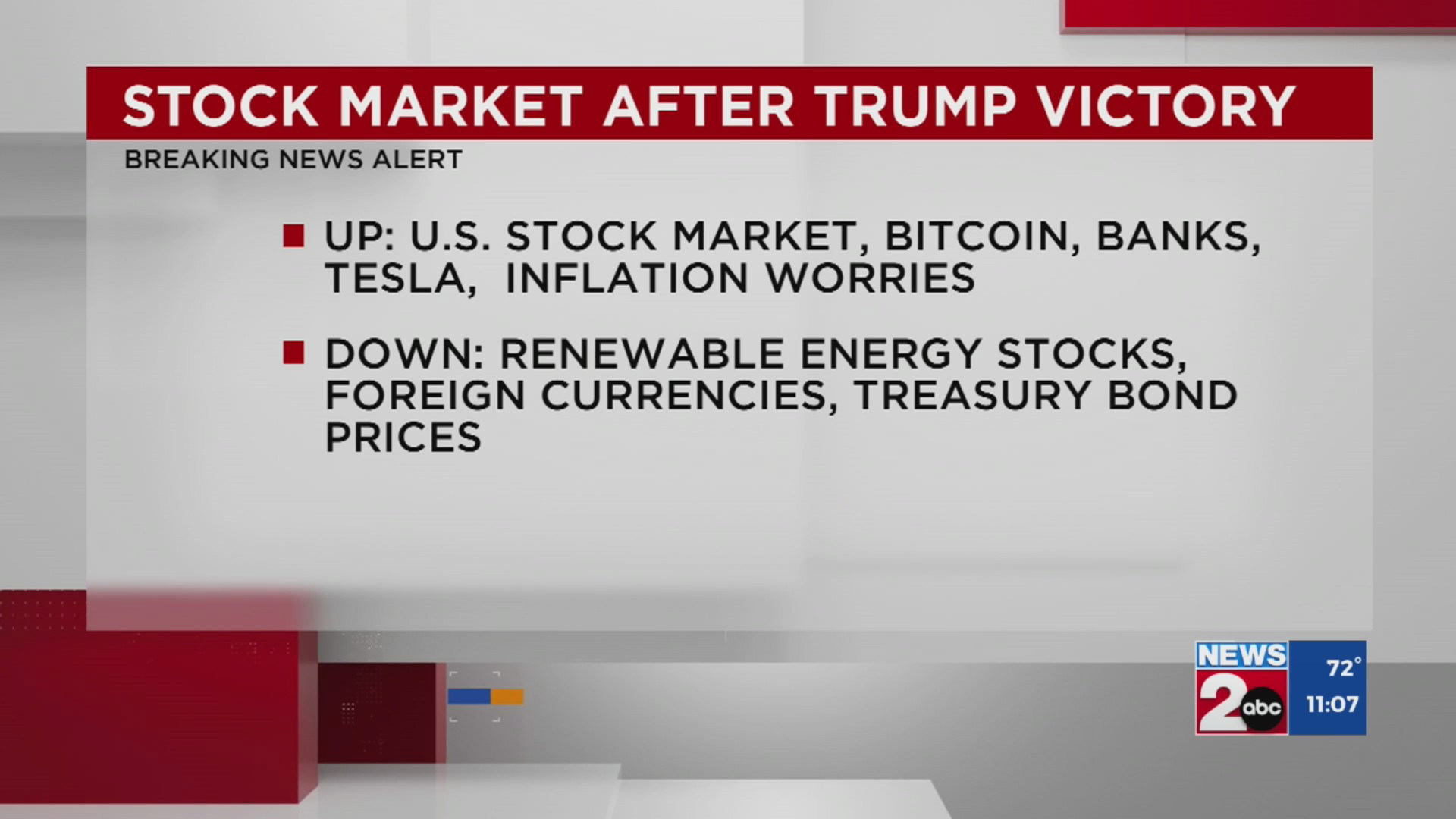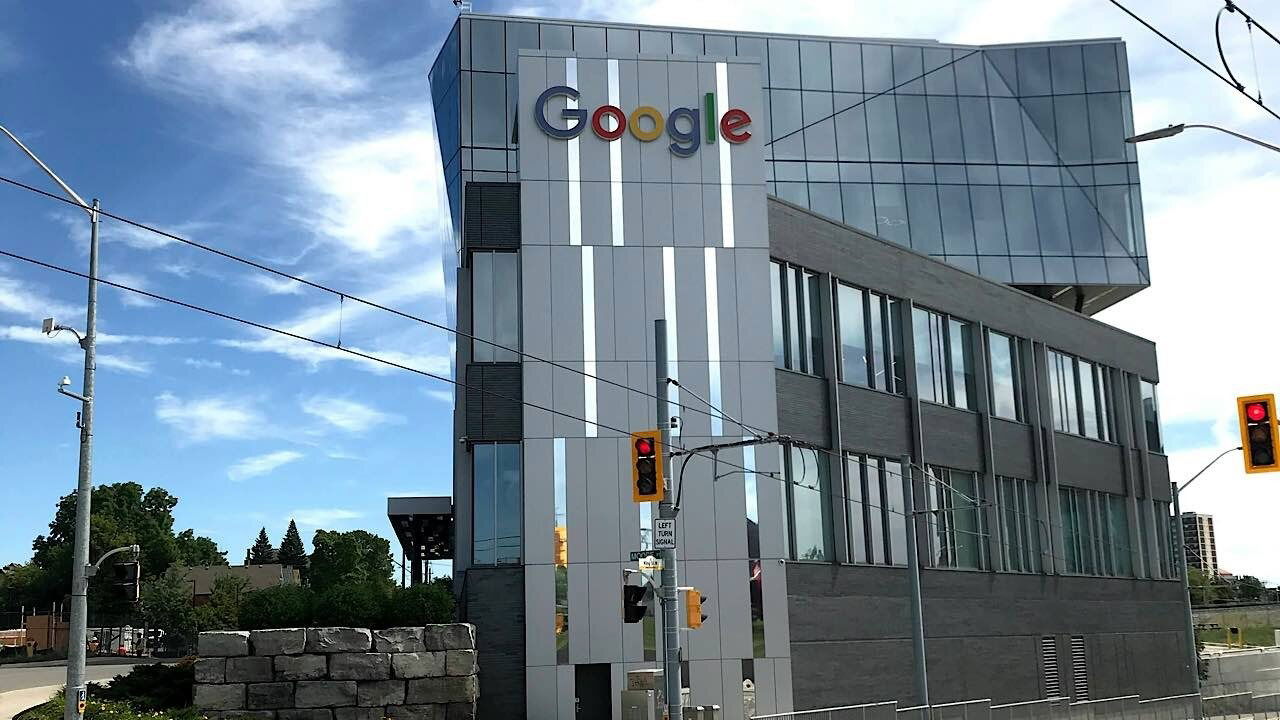Hollywood Strike: Actors Join Writers, Bringing Production To A Standstill

Table of Contents
The Writers' Strike: Setting the Stage
The initial writers' strike, launched by the Writers Guild of America (WGA), set the stage for the current crisis. The WGA's key demands centered around adapting to the changing landscape of the entertainment industry, particularly the rise of streaming services. These demands highlighted the precarious financial situation many writers face in the digital age, where traditional revenue streams have been disrupted. The strike brought immediate attention to the disparity between the immense profits generated by streaming giants and the compensation received by those who create the content.
- Demand for higher minimum wages to account for inflation: Writers, like many other workers, are facing the pressure of rising living costs, and their salaries haven't kept pace. This is especially critical for junior writers who rely on minimum wages to survive.
- Concerns about the impact of AI on writers' jobs and creative control: The increasing use of artificial intelligence in scriptwriting poses a significant threat to writers' livelihoods and creative autonomy. The WGA is seeking guarantees that AI will not replace human writers and that writers will retain control over their work.
- Fight for fairer residuals from streaming services: Traditional television models provided writers with residuals based on syndication and reruns. Streaming services, however, often offer significantly lower residuals, if any at all, impacting writers' long-term income.
- Discussions about showrunner authority and creative freedom: The WGA is also addressing concerns around the power dynamics between showrunners and studios, pushing for greater creative control and fairer treatment for writers.
Actors Join the Picket Lines: A Unified Front
The Screen Actors Guild - American Federation of Television and Radio Artists (SAG-AFTRA) joined the picket lines, solidifying a powerful unified front against the Alliance of Motion Picture and Television Producers (AMPTP). This unprecedented collaboration significantly amplified the pressure on studios and streaming platforms. The actors' decision to strike stemmed from shared concerns with writers, particularly regarding fair compensation in the age of streaming and the growing threat of AI.
- SAG-AFTRA's concerns regarding fair compensation in the streaming era: Actors, like writers, have seen their compensation eroded by the shift to streaming. Traditional residuals are largely nonexistent in many streaming deals, significantly impacting their income.
- Issues related to self-tape auditions and the erosion of traditional working conditions: The rise of self-tape auditions has reduced the traditional role of casting directors and agents, creating new challenges for actors and potentially impacting their earning power.
- Concerns about the use of actors' images and likenesses through AI: The potential for AI to replicate actors' performances and use their likenesses without their consent is a major point of contention, raising serious ethical and financial issues.
- The impact of streaming on residuals and overall actor compensation: Streaming platforms' business models have disrupted traditional revenue streams for actors, leading to significant pay cuts and a lack of transparency regarding earnings.
Key Demands of the Combined Strike
The combined strike by writers and actors presents a powerful set of unified demands, strengthening their negotiating position considerably. These core demands underscore the need for fundamental changes in the way the entertainment industry operates.
- Increased minimum pay and residuals: Both writers and actors are seeking significant increases in minimum pay to reflect inflation and the increased value of their work in the streaming era. They also demand fairer and more transparent residual structures.
- Stronger regulations regarding the use of AI in script writing and performance capture: Stricter regulations are necessary to protect creatives from exploitation by AI and ensure their work is properly compensated.
- Fairer contracts and improved working conditions: The goal is to secure contracts that are fair, equitable, and provide better working conditions for all entertainment professionals.
- Transparency in streaming revenue and profit sharing: Demand for greater transparency in the financial dealings of streaming platforms is essential to ensure fair compensation for writers and actors.
The Impact of the Hollywood Strike: Ripple Effects Across the Industry
The Hollywood strike extends far beyond the picket lines, generating significant ripple effects across the entire entertainment industry and beyond. The economic and cultural implications are far-reaching.
- Delayed film and television releases: Numerous film and television projects have been indefinitely postponed, impacting release schedules and potentially altering the entire entertainment calendar.
- Financial losses for studios and streaming platforms: The strike represents substantial financial losses for studios and streaming platforms, impacting production budgets and potentially affecting stock values.
- Impact on ancillary businesses (catering, location services, etc.): The strike has impacted countless businesses that depend on film and television production, causing job losses and economic hardship for those working within the industry’s support structure.
- Potential long-term effects on the creative landscape: The outcome of the strike could have profound and lasting effects on the creative landscape, potentially shaping future labor practices and industry dynamics.
Conclusion
The Hollywood strike, a powerful display of solidarity by writers and actors, highlights the crucial need for fair compensation and working conditions in the evolving entertainment industry. The widespread impact of this labor action underscores the importance of addressing the issues raised by the striking workforce. The prolonged nature of the strike emphasizes the gravity of the situation and the determination of those involved. The future of Hollywood hinges on a resolution that benefits both creatives and the industry as a whole. Stay informed on the progress of the Hollywood strike and continue to support fair labor practices within the entertainment industry. Understanding the complexities of this Hollywood strike is crucial for navigating the changing landscape of film and television production.

Featured Posts
-
 Is Google Facing Its Biggest Threat Yet A Potential Breakup
Apr 22, 2025
Is Google Facing Its Biggest Threat Yet A Potential Breakup
Apr 22, 2025 -
 Trumps Trade Wars Assessing The Damage To Americas Financial Primacy
Apr 22, 2025
Trumps Trade Wars Assessing The Damage To Americas Financial Primacy
Apr 22, 2025 -
 Google Monopoly Examining The Arguments For A Company Breakup
Apr 22, 2025
Google Monopoly Examining The Arguments For A Company Breakup
Apr 22, 2025 -
 Understanding The Crucial Role Of Middle Managers In Todays Organizations
Apr 22, 2025
Understanding The Crucial Role Of Middle Managers In Todays Organizations
Apr 22, 2025 -
 Covid 19 Test Fraud Lab Owner Admits To Falsifying Results
Apr 22, 2025
Covid 19 Test Fraud Lab Owner Admits To Falsifying Results
Apr 22, 2025
